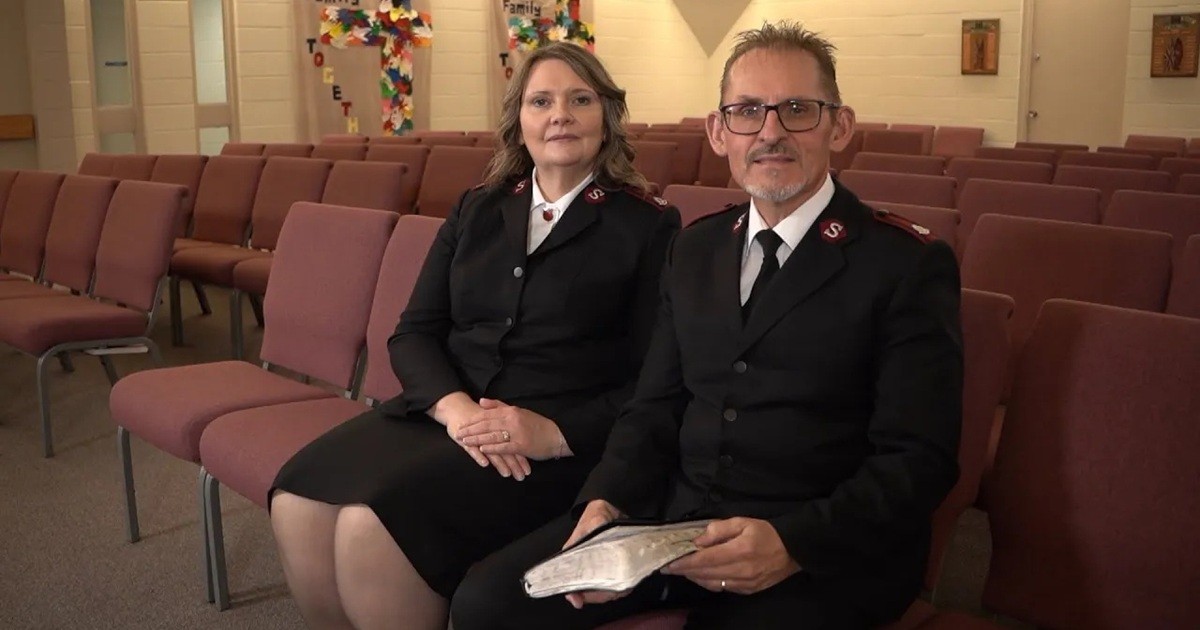In this series, we are reflecting on themes from the Gospel of John and what it means to live sacramentally—to live our lives intentionally in God’s revealed presence. In Chapter 9, we encounter a blind man who receives sight. This story is not just about healing; it is about recognizing who Jesus is and realizing that with Jesus, the presence of God has come among us.
Our lives as Christians are foundationally meaningful because of the presence of God, which gives us purpose, guidance and direction. The presence of God unfolds in Scripture in tangible ways, beginning with the Garden of Eden, where Adam and Eve walked with God. Later, God’s presence was with his people in the cloud and pillar of fire in the wilderness, and then in the tabernacle, where God met with Moses at the ark of the covenant. The tabernacle was replaced by a permanent structure when Solomon built a temple in Jerusalem, which became the resting place of the ark and the location of God’s presence, where heaven and earth met.
During the exile, when the temple was no longer accessible, the Jewish people needed another visible sign of God’s presence. Attention and obedience to the Torah, the first five books of the Bible, became the place where God’s presence was realized. In the New Testament, and for Christians, Jesus becomes the tangible expression of God’s presence.
In John’s Gospel we understand that Jesus made his dwelling among us (see John 1:14), and that Jesus is God’s presence among us.
In John 9, the overall trouble is darkness and lack of hope. This is represented by a man’s blindness and the disciples’ misunderstanding of its cause. The darkness is also lack of knowledge. At the start of the story, no one really knows that Jesus is connected to the creative activity of God. In the darkness, they cannot see the hope that Jesus is the life-giving presence of God.
There are many joys in life (family, friends and new relationships), but even they cannot take our attention away from the real darkness that is in our world. The darkness of broken relationships, fear of outsiders and policies that are oppressive and life-taking. This darkness encompasses a lack of hope for the future. We may even ask, where is the God of hope?
The grace that we find in this Scripture passage speaks into this situation. By this grace we are called into the creative activity of God. Jesus, the light of the world (see John 8:12), heals the man born blind and continues to reveal that he is the life-giving presence of God. Jesus’ light recalls God’s presence as a pillar of fire in wilderness. Jesus making mud recalls God’s activity of creating humanity from the dust of the ground.
The grace that connects the hearers to the creative activity of God moves from the healing to the man’s progressive understanding of who Jesus is. We see this in John 9:38, when the man confesses, “Lord, I believe.” This story brings hope not only because the man received his sight, but in the recognition of the creative activity of God in Jesus and the man’s commitment to Jesus.
This same hope, this same grace, is operating in the world today. In John 9:4, Jesus says, “As long as it is day, we must do the works of him who sent me.” Sharing in the creative action of God is living the sacramental life.
We have been created to live as a means of light and grace in this dark world. If we have received the light, we also have the God-given commission to bear witness to God’s grace to others. An example of this is found in General William Booth’s famous address, “I’ll Fight”:
While women weep, as they do now, I’ll fight; while little children go hungry, I’ll fight; while men go to prison, in and out, in and out, as they do now, I’ll fight—while there is a drunkard left, while there is a poor lost girl upon the streets, where there remains one dark soul without the light of God—I’ll fight! I’ll fight to the very end!
Who are the people in your life who need the light of Jesus?
This is the second article in a five-part series on sacramental living. Articles will be published monthly, alternating in print and online at Salvationist.ca.
Part 1: An Encounter With Jesus
Part 3: Called to Abide
Part 4: Becoming a Living Mercy Seat
Part 5: Simply Good News
Major Steven Cameron is the theological formation co-ordinator at the College for Officer Training in Winnipeg.
Photo: LUMO-The Gospels for the visual age/Lightstock.com










Beautiful article! God bless!